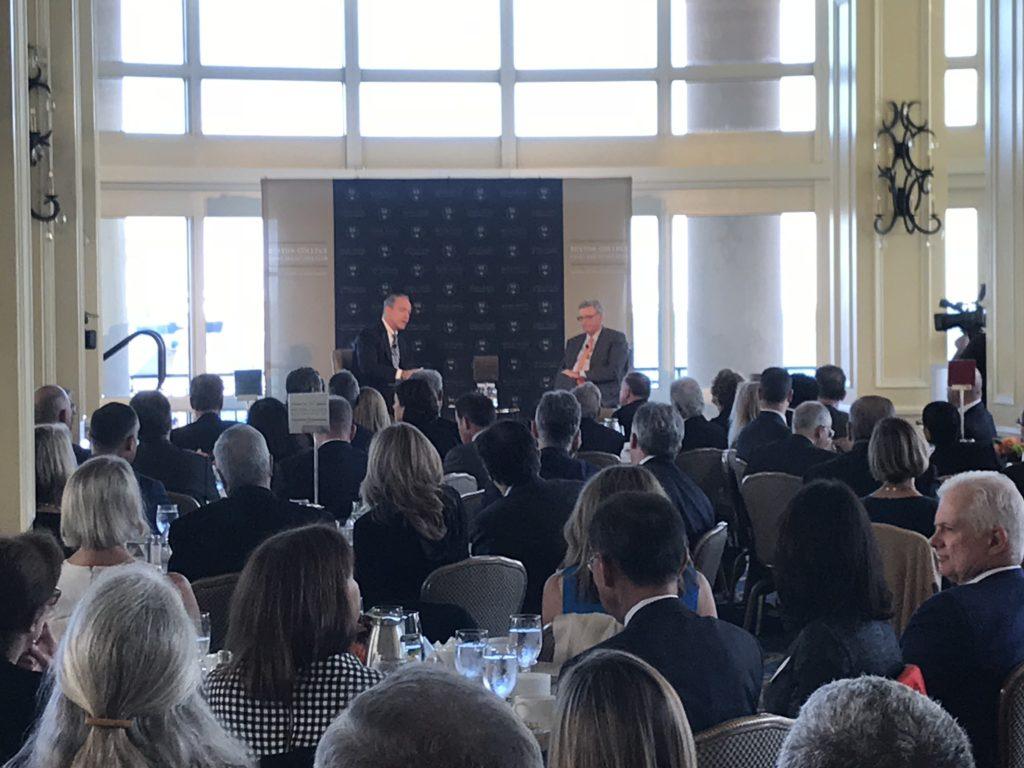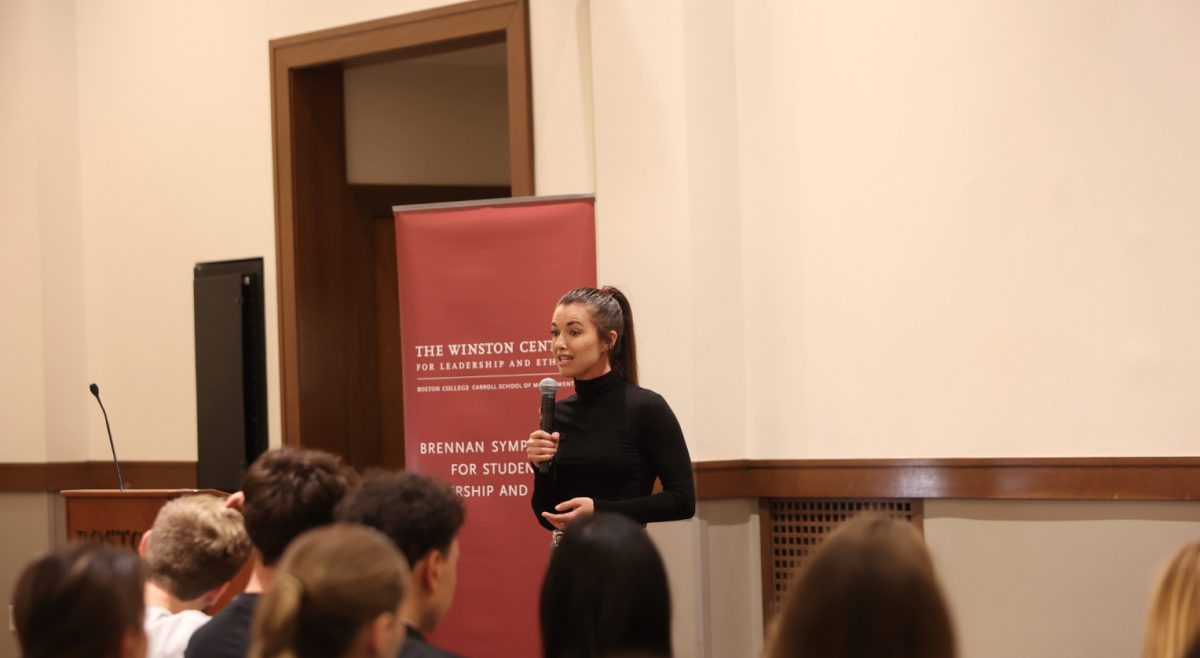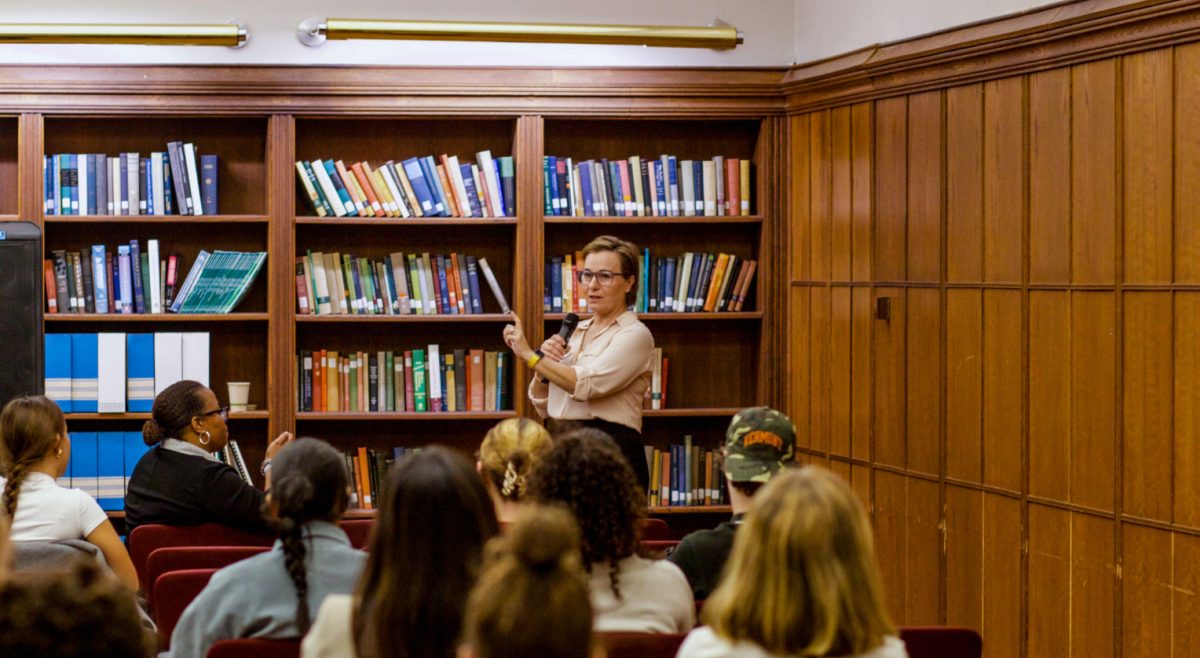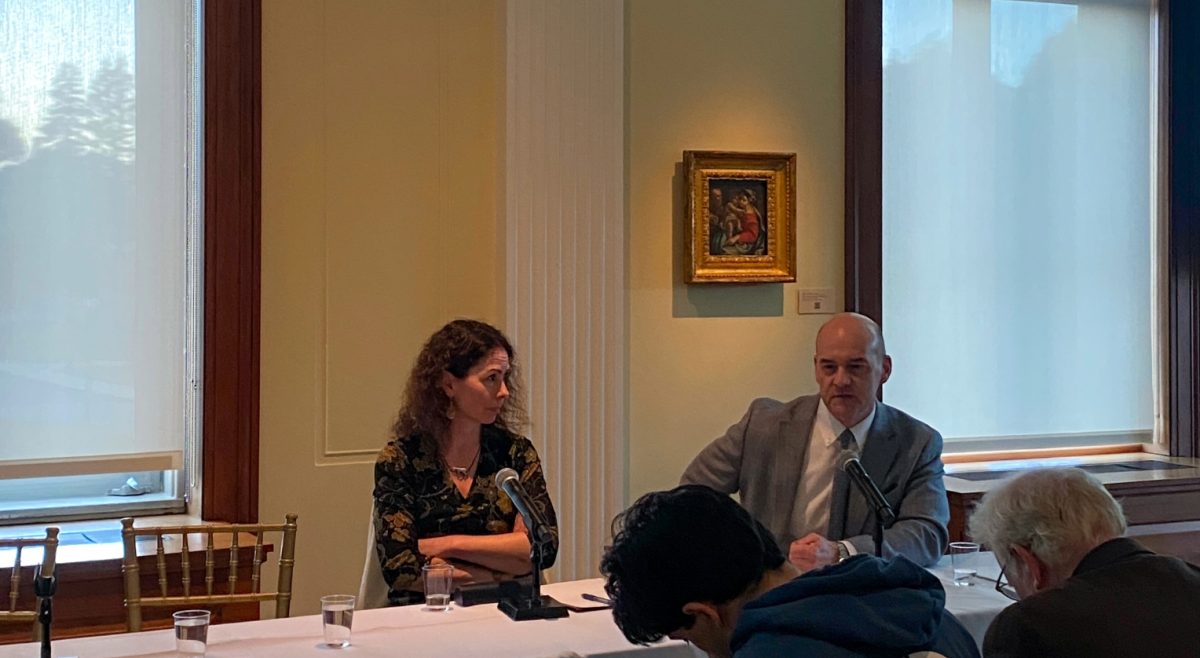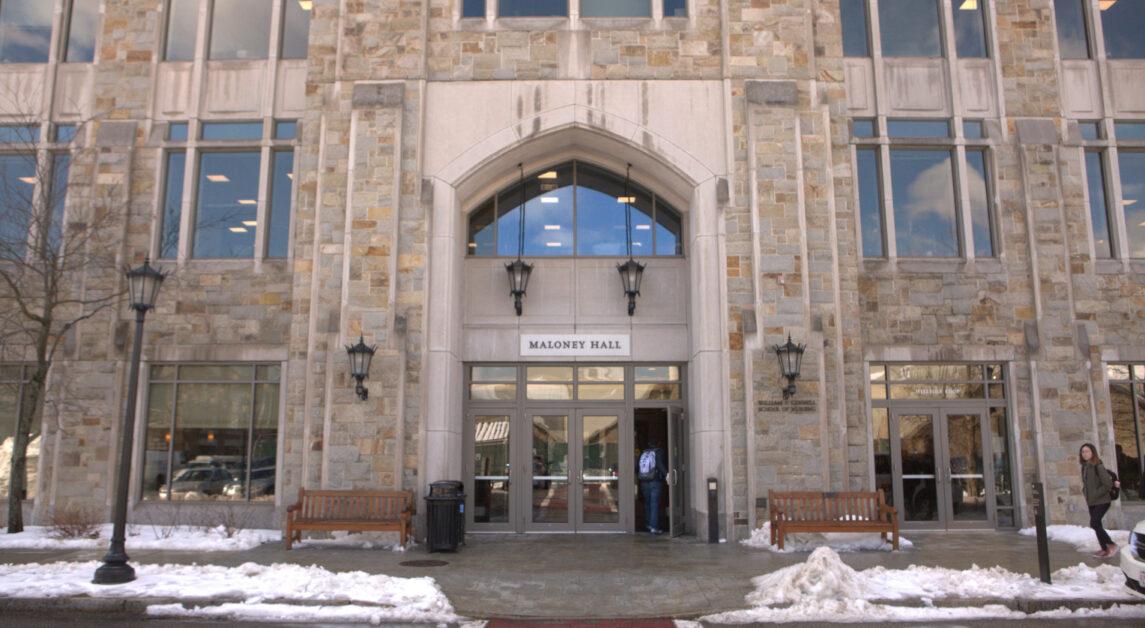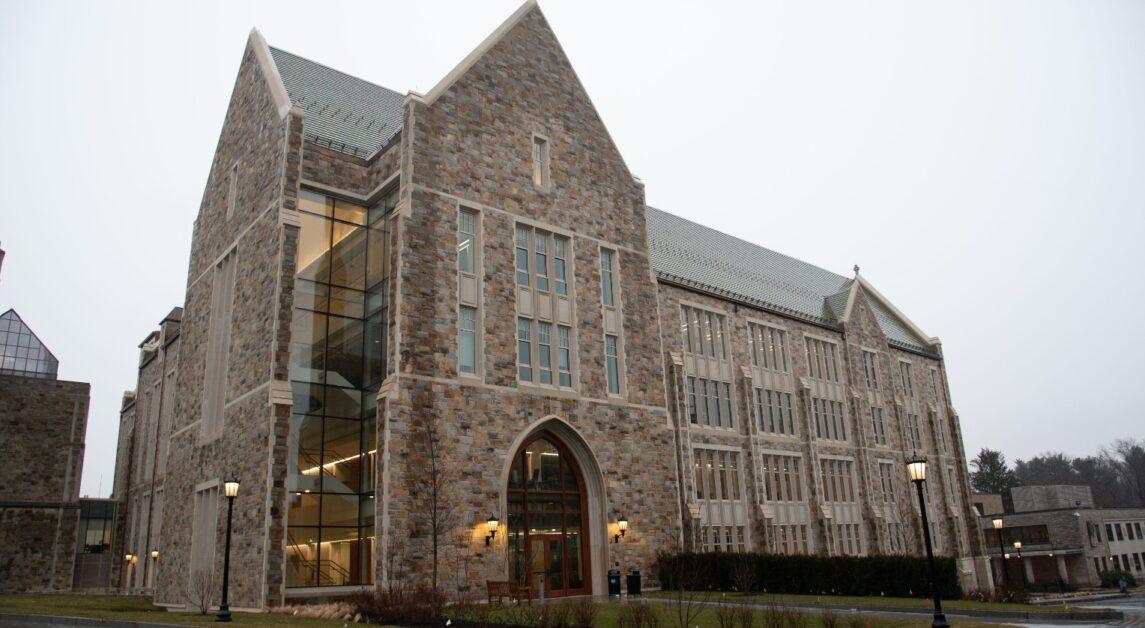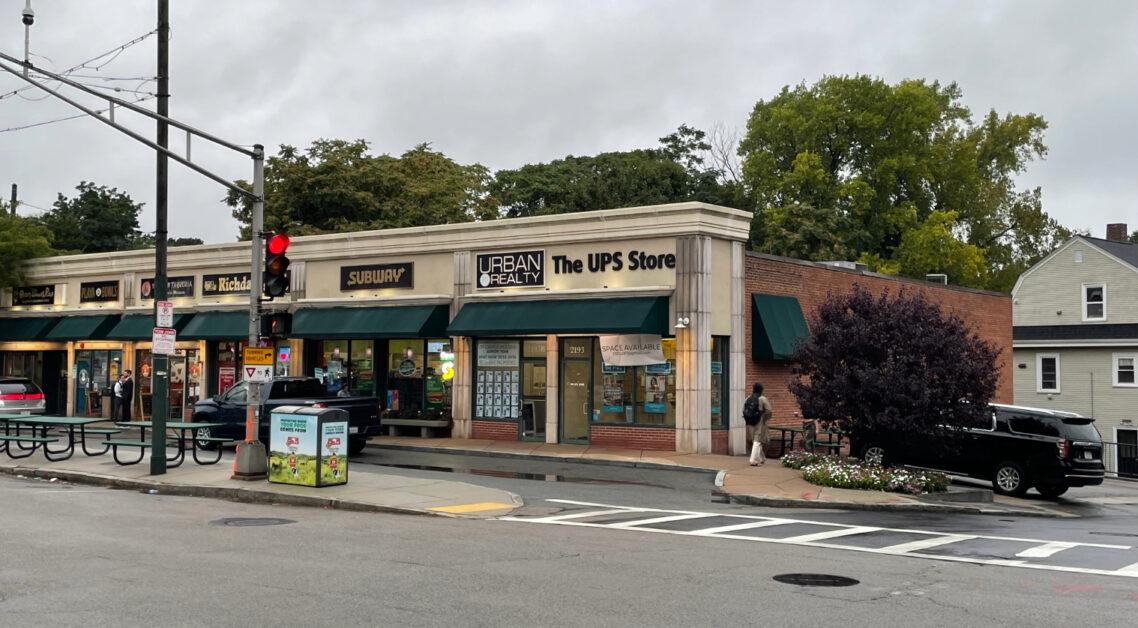The Boston College Chief Executives Club convened on Thursday to hear Visa Inc. CEO and BC Board of Trustees member Alfred Kelly speak on the leadership, the current state of affairs and the future at Visa.
Kelly was interviewed by John Fish, BC Board of Regents chair and CEO of the Suffolk Construction Company, at the Boston Harbor Hotel.
Fish kicked the event off by asking anyone in the room who owned a VISA credit card to raise their hand—almost everyone in the room indicated they were VISA customers. That was not a surprise to Kelly, who noted that VISA is capable of processing 65,000 transactions a second.
“Last year, there were 166 billion transactions on VISA cards around the world,” Kelly said. “10.3 trillion dollars of funds moved and every evening we settle in 160 different currencies.”
Kelly went on to talk about VISA’s growth potential and its strategy in regards to the emergence of increasingly differentiated financial technology companies. He noted that VISA has invested in and developed “close relationships” with startup technology companies that have appeared in the financial industry such as Stripe, which allows online ecommerce business to receive payments.
“I want to be the most open company in the world,” Kelly said. “I want to declare everybody a friend until they prove they’re an enemy.”
Kelly then talked about how the company has expanded to employ 17,000 people and its share price has increased 1,200 percent since the company went public in 2008. He noted that this rapid expansion has caused the financial giant to hire many young people.
“I’m an old man at VISA,” Kelly said. “There’s so much enthusiasm amongst our young engineers.”
This led him to switch gears to the future of the payment industry as a whole. He acknowledge a shift in consumer demand for cards that come with a lot of benefits like cash back or low APR rates to “contactless cards.”
“We’re way behind the rest of the world in terms of tap and pay, contactless cards,” Kelly said. “The infrastructure of the United States is largely piped to support tap and pay today, meaning the terminals are able to absorb it but the banks have not been issuing the cards that have the capability to send the near field communications.”
VISA is also focused on the future of online commerce and the way that consumers purchase items online.
“We’re 100 percent behind a new initiative to have a common button where, if you want to check out, there’s a common button that works for every payment instrument,” Kelly said. “You hit the button, it will bring up a wallet, so it will show you any of the credit cards you’ve pre-loaded.”
Kelly then predicted that the use of cash will decrease among consumers, but not be totally eradicated, in the near future.
“People are starting to realize how expensive cash is,” Kelly said. “It’s expensive to store, it’s expensive to count.”
Fish closed by steering the conversation toward leadership, leading Kelly to remark that regardless of the organization, “you can’t be successful without the right people.” He continued to mention that one of his first acts at CEO of VISA was to send a letter to the top 900 employees, laying out his expectations.
Visa implemented a two-pronged rating-system, with both aspects given equal weighting in determining final compensation.
“We have now established a set of leadership principles in the company,” Kelly said. “Everybody in our company will get two ratings. One based on goals and the other based on how they get in terms of leadership.”
Featured Image by Owen Fahy / Heights Staff

